Canada Has Issued Travel Advisories For These 11 Popular Vacation Spots
Unexpected events can disrupt even the best-laid plans.
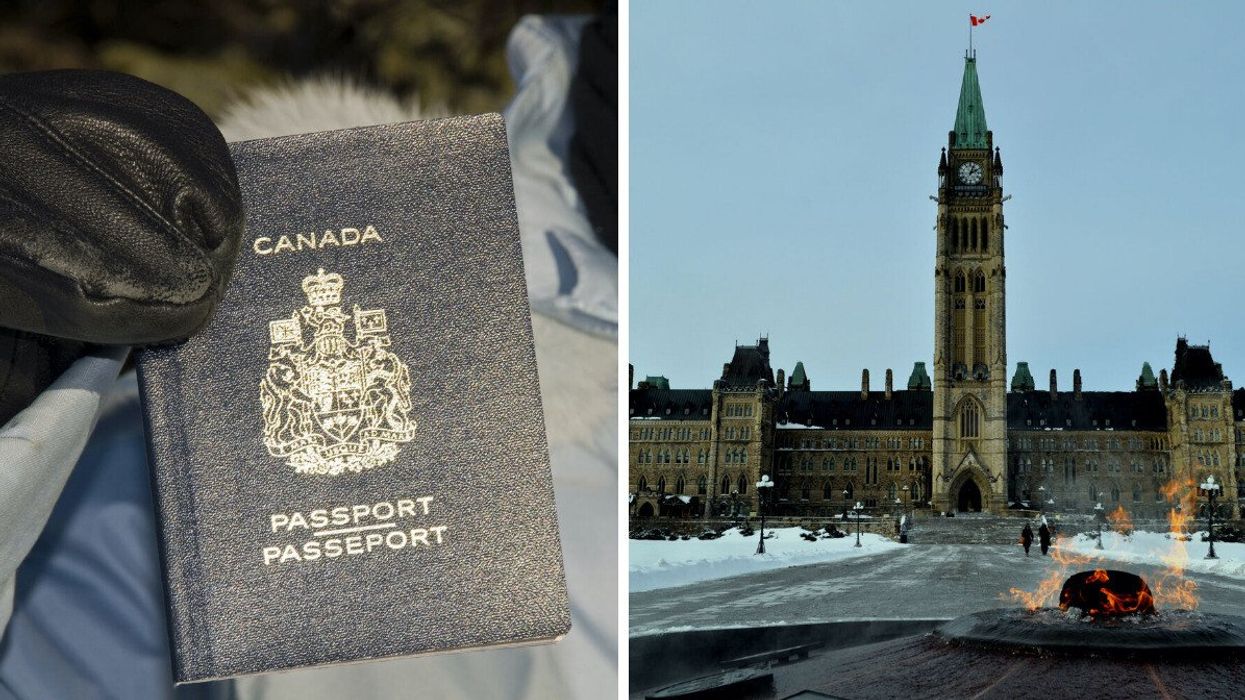
Someone holds up a Canadian passport. Right: The Parliament of Canada in Ottawa.
Canadian travellers looking to explore the world might need to adjust their itineraries in 2024. New advisories from Canada highlight concerns in several beloved destinations. Popular spots like Cuba, Costa Rica, and even Iceland, now come with a cautionary note due to rising crime rates and potential natural disasters.
The advisories could complicate decision-making for those eager to choose their next vacation spot or throw an unexpected curveball on arrival at their destination. Here are 11 countries currently flagged by the Canadian government:
Iceland
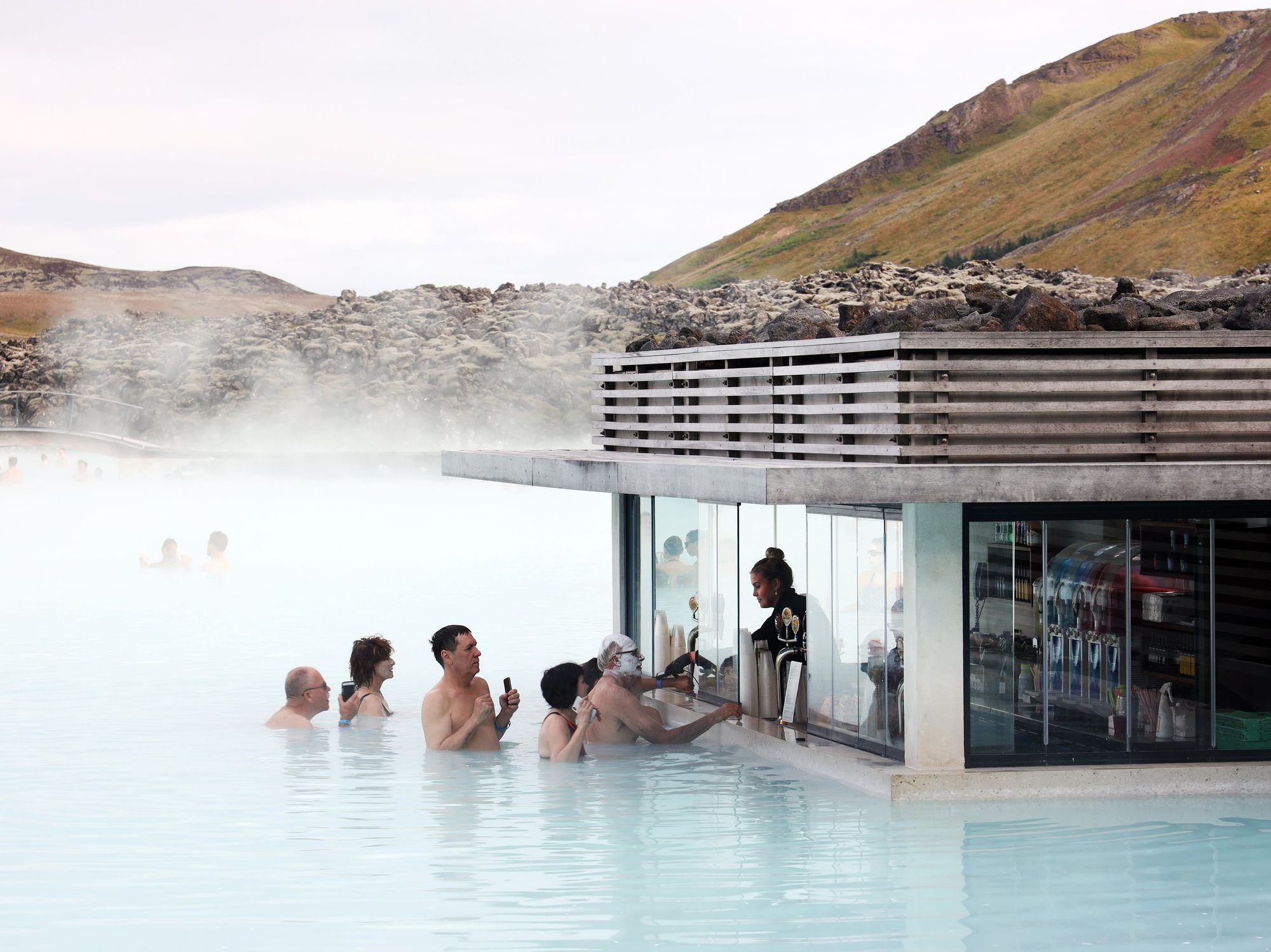
The Blue Lagoon is a geothermal spa in southwestern Iceland, located in a lava field on the Reykjanes Peninsula.
Risk level: Take normal security precautions
Why: On February 8, 2024, a volcanic eruption rocked Iceland's Reykjanes Peninsula, prompting evacuations and road closures as dangerous lava flows and volcanic gas threatened nearby towns, including Grindavík. Authourities caution residents about potential pollution spreading towards Reykjavik and a risk to the hot-water supply in the Suðurnes Region, affecting several towns.
Despite disruptions, Keflavik International Airport remains operational, but residents are urged to monitor air quality and heed safety precautions amidst the evolving situation.
Bahamas
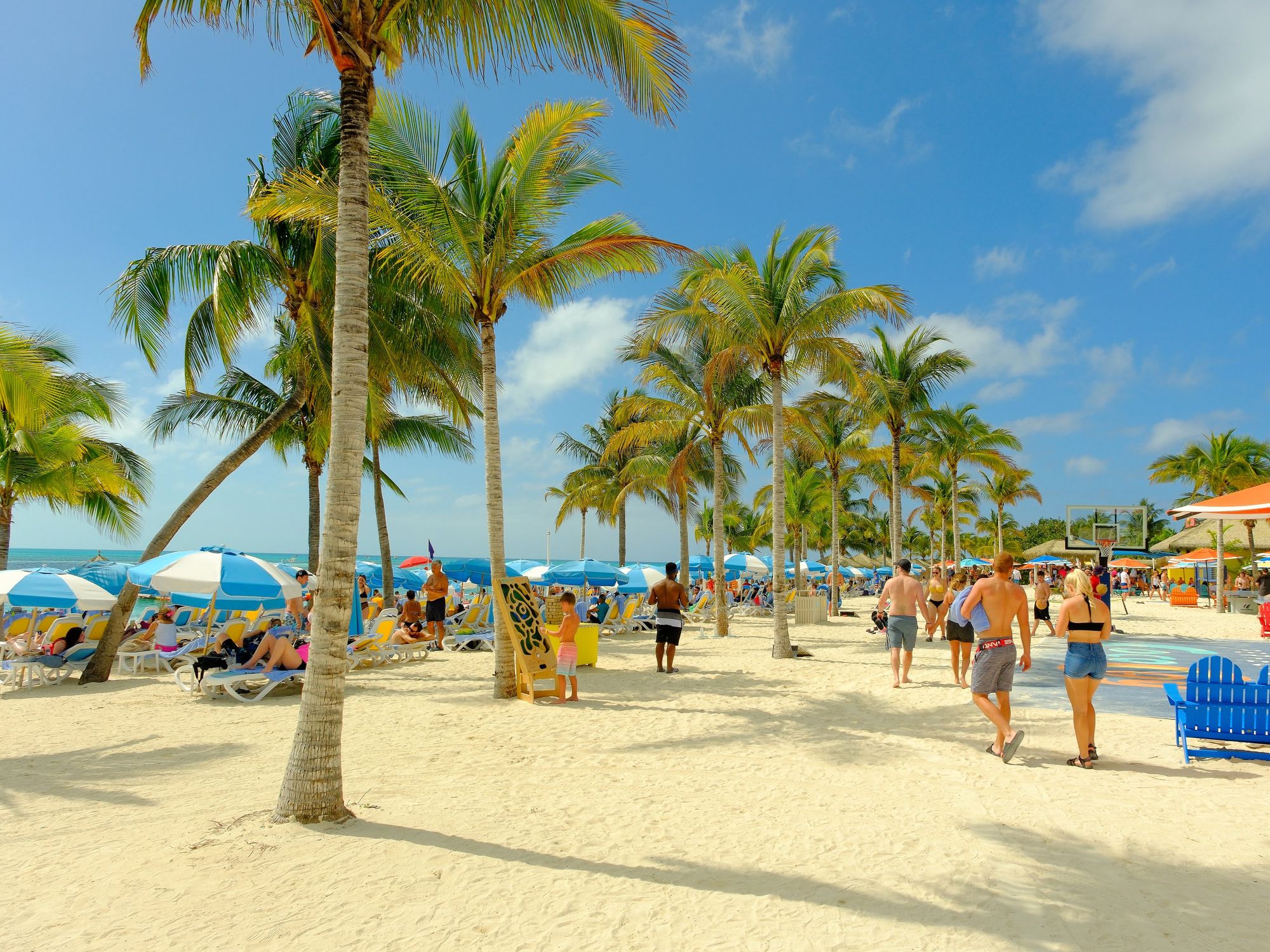
Tourists walk on the beach at Cococay in the Bahamas.
Risk level: Exercise a high degree of caution
Why: In Freeport and Nassau, safety concerns persist due to ongoing crime rates. While violent crime has seen a slight decrease since 2018, issues such as armed robberies, theft, and sexual assaults continue to affect travellers, especially in popular tourist areas.
Places to avoid, particularly at night, include Nassau's "over the hill" district, located south of Shirley Street, and the Fish Fry (Arawak Cay) area. The neighbourhoods have been identified as having higher rates of crime, making them potentially unsafe for visitors.
Thailand
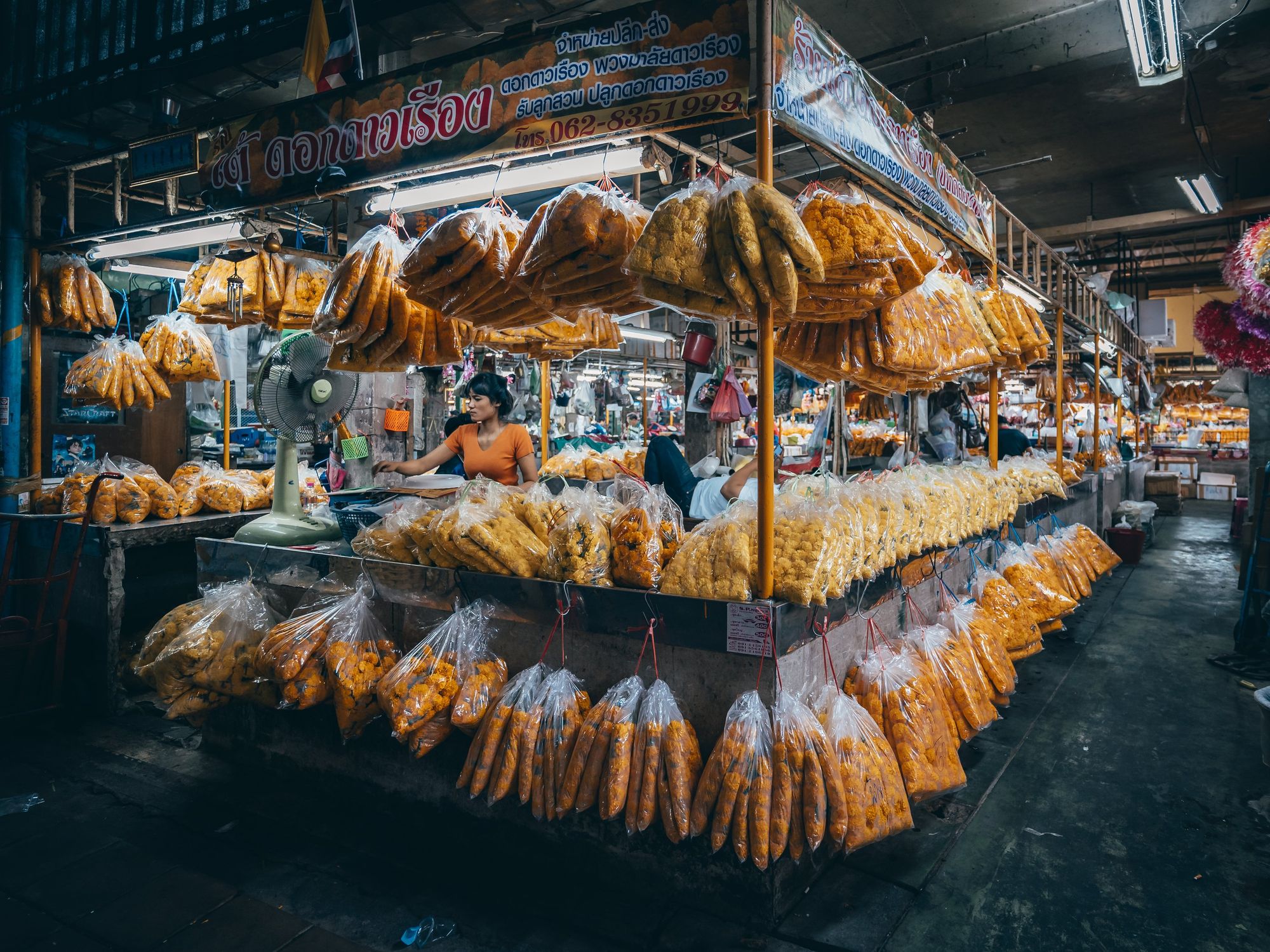
A Bangkok street market stall at night.
Risk level: Exercise a high degree of caution
Why: Political tensions are escalating throughout Thailand, particularly in Bangkok, where sporadic protests can disrupt the city. In the southern provinces of Narathiwat, Pattani, Songkhla, and Yala, caution is advised due to violent attacks by separatist insurgents targeting military, government, and public areas. Martial law is in effect in these regions, granting authorities extensive powers.
Along the Myanmar border in Mae Hong Son and Tak provinces, travellers may witness clashes with drug traffickers. Border disputes with Cambodia are serious and there are reports of landmines near the Preah Vihear Temple. Restrictions on public gatherings, media censorship, and disruptions to social media services, are ways the government often tries to maintain safety.
Antarctica
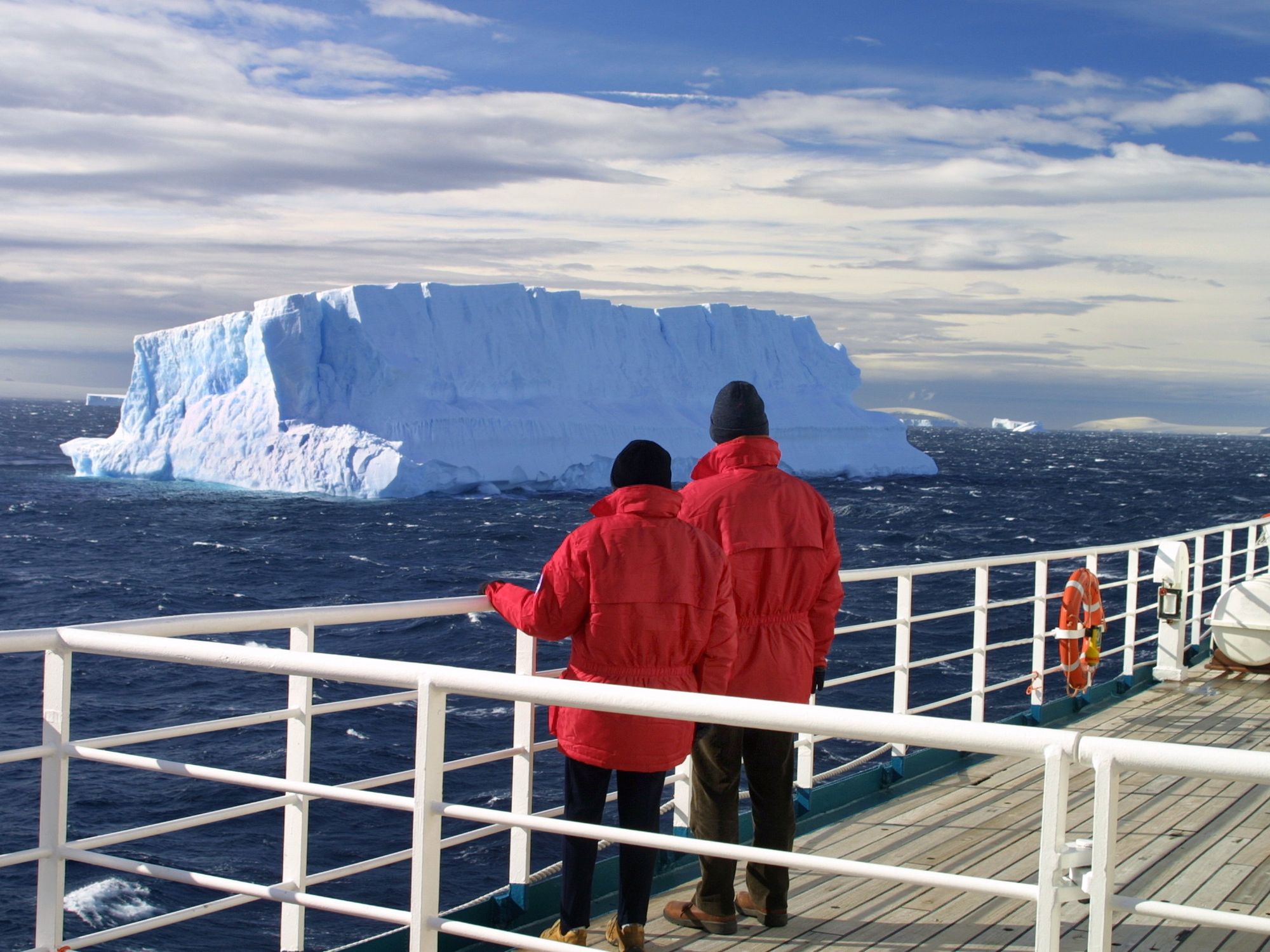
Two passengers look at an iceberg from a cruise ship.
Risk level: Exercise a high degree of caution
Why: Antarctica's extreme weather and limited infrastructure pose significant safety risks, with frostbite and sun exposure leading to potential health hazards. Independent travellers must be fully self-sufficient due to the absence of public communication services and emergency support.
Tourist facilities are scarce, with only privately run bases catering to specific expeditions. To minimize environmental impact, visitors should opt for organized tours or scientific expeditions facilitated by reputable operators.
Türkiye

Someone looks at an ancient carving at the Istanbul Archaeological Museum.
Risk level: Exercise a high degree of caution with regional advisories
Why: Ongoing protests sparked by events in Israel, the West Bank, and Gaza have intensified security concerns across Türkiye. Travel is not advised to border areas with Syria and earthquake-affected regions like Kahramanmaraş and Malatya.
Southeastern provinces like Hakkari and Siirt are also marked by instability. In Ankara, where tensions linger following a recent explosion in the Kizilay district, vigilance and strict adherence to local authourities' instructions are a must.
United Arab Emirates
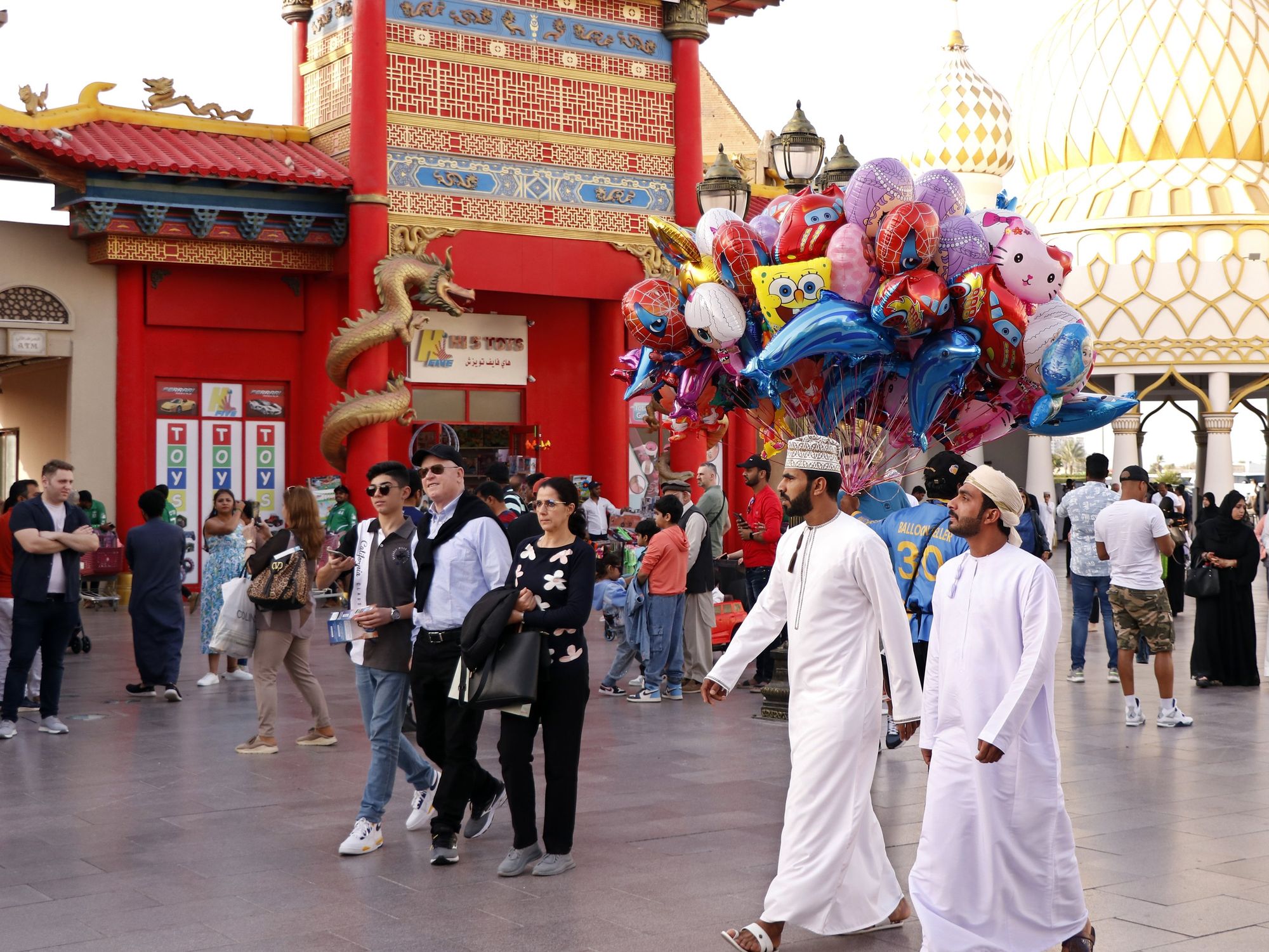
People walk through the Global Village tourist attraction in Dubai.
Risk level: Exercise a high degree of caution
Why: The UAE faces a persistent terrorism threat, with groups indicating their intent to target locations frequented by foreigners. Enhanced security measures are in place, subject to reinforcement at short notice. Regional tensions contribute to an unpredictable security situation, with armed groups openly expressing their intention to launch missile and drone attacks.
Despite a generally low crime rate, petty theft and credit card fraud remain concerns, highlighting the importance of securing personal belongings. Cybercrime, including malware attacks and romance scams, is also a possibility. Women travelling alone should be especially cautious due to the increased risk of harassment and verbal abuse, especially in less populated areas. It's advisable to avoid isolated areas at night.
Brazil
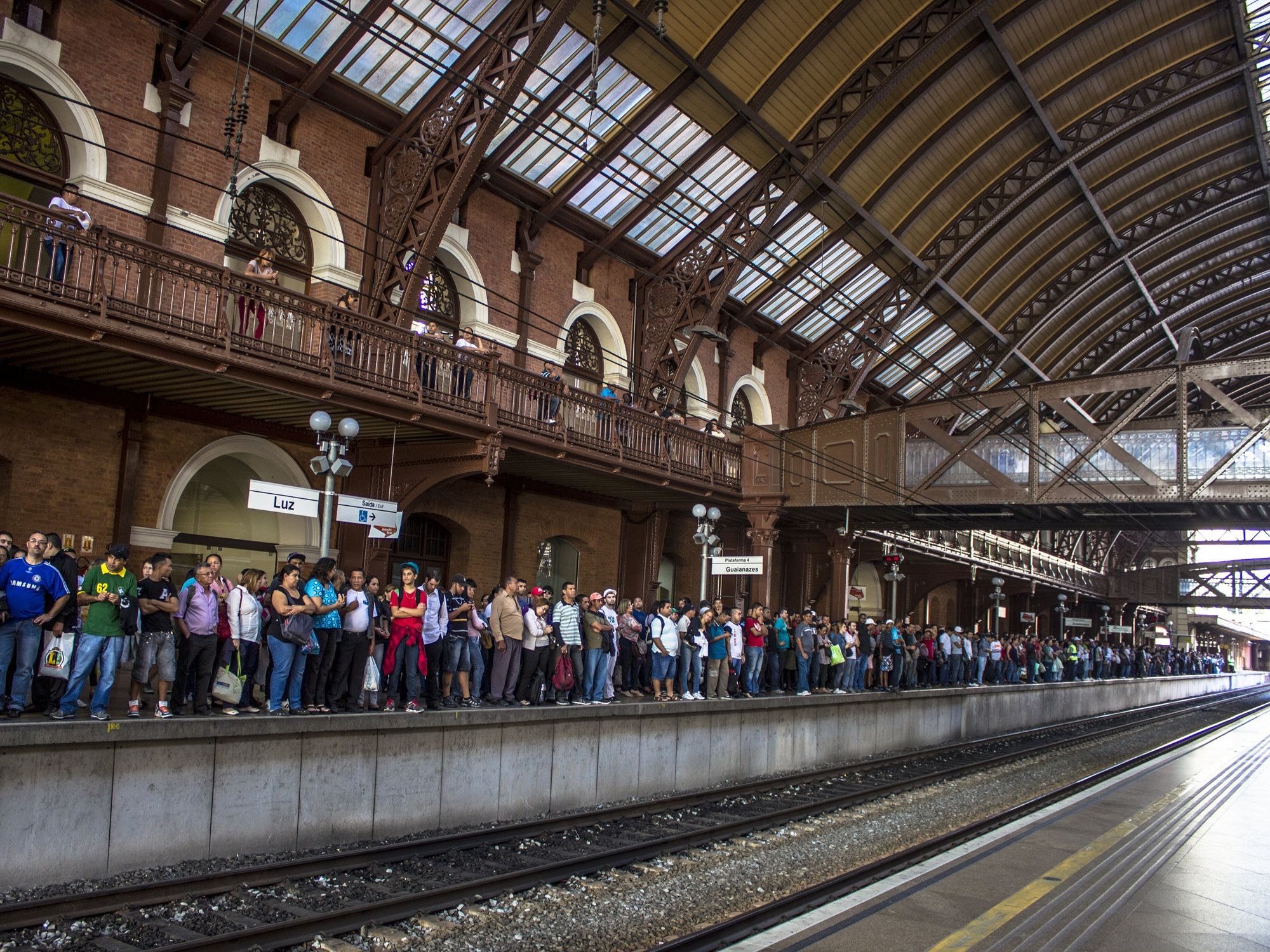
People wait for a train at the boarding platform of the Luz station in the central region of São Paulo.
Risk level: Exercise a high degree of caution
Why: Urban areas in Brazil, particularly Rio de Janeiro, São Paulo, Brasilia, Recife, and Salvador, are hotspots for crime, with tourists frequently targeted for theft and violence. Street crime, such as pickpocketing and theft from cars, is rampant in cities like Rio and São Paulo, with Recife facing significant concerns about petty theft. Large-scale events like Carnival and New Year's celebrations often see a spike in opportunistic crime.
Flash mob robberies have sporadically occurred on Rio's beaches and tourist areas, often perpetrated by thieves from nearby favelas. Violent robberies are a growing issue, especially at restaurants and on trains. Express kidnappings, particularly prevalent in Rio, involve victims being forced to withdraw funds from ATMs. Organized criminal activity along Brazil's borders with Colombia and Venezuela poses additional risks for travellers. Starting April 10, 2024, Canadian passport holders will require visas for entry into Brazil.
Colombia
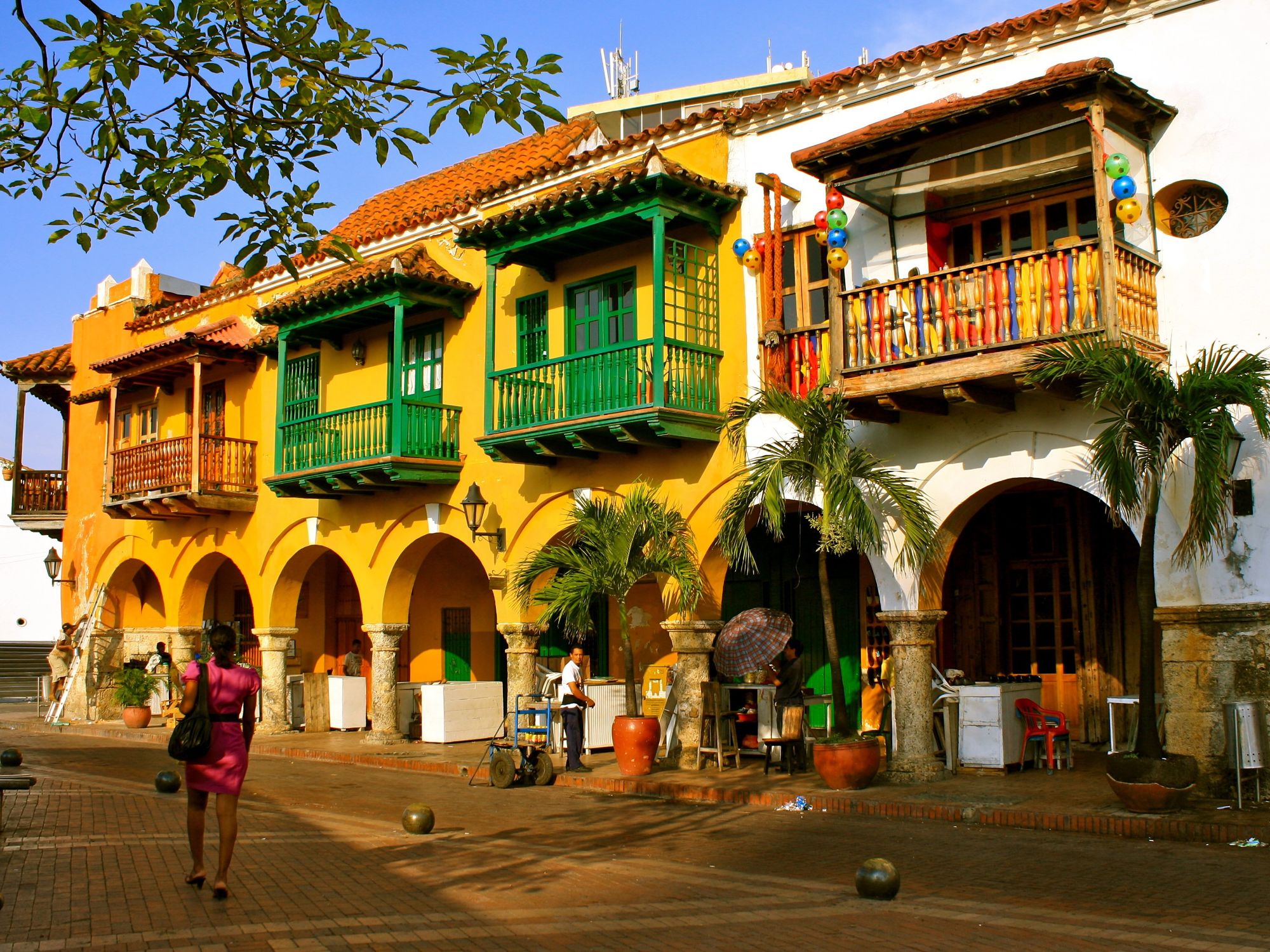
Colonial buildings with wooden balconies at Plaza de los Coches inside the walled city of Cartagena de Indias, Colombia.
Risk level: Exercise a high degree of caution with regional advisories
Why: Border areas, including regions like Arauca and Norte de Santander, are prone to kidnapping and violence, often perpetrated by illegal armed groups and criminal organizations. Certain parts of Antioquia and Valle del Cauca are advised against due to drug-related criminal activity.
In Medellin, movement restrictions for minors have been implemented to prevent sexual exploitation. These restrictions, effective until July 31, 2024, prohibit minors from areas like El Poblado and La Candelaria during specified hours unless accompanied by parents or legal guardians. Proper identification is required to comply with these regulations.
Costa Rica
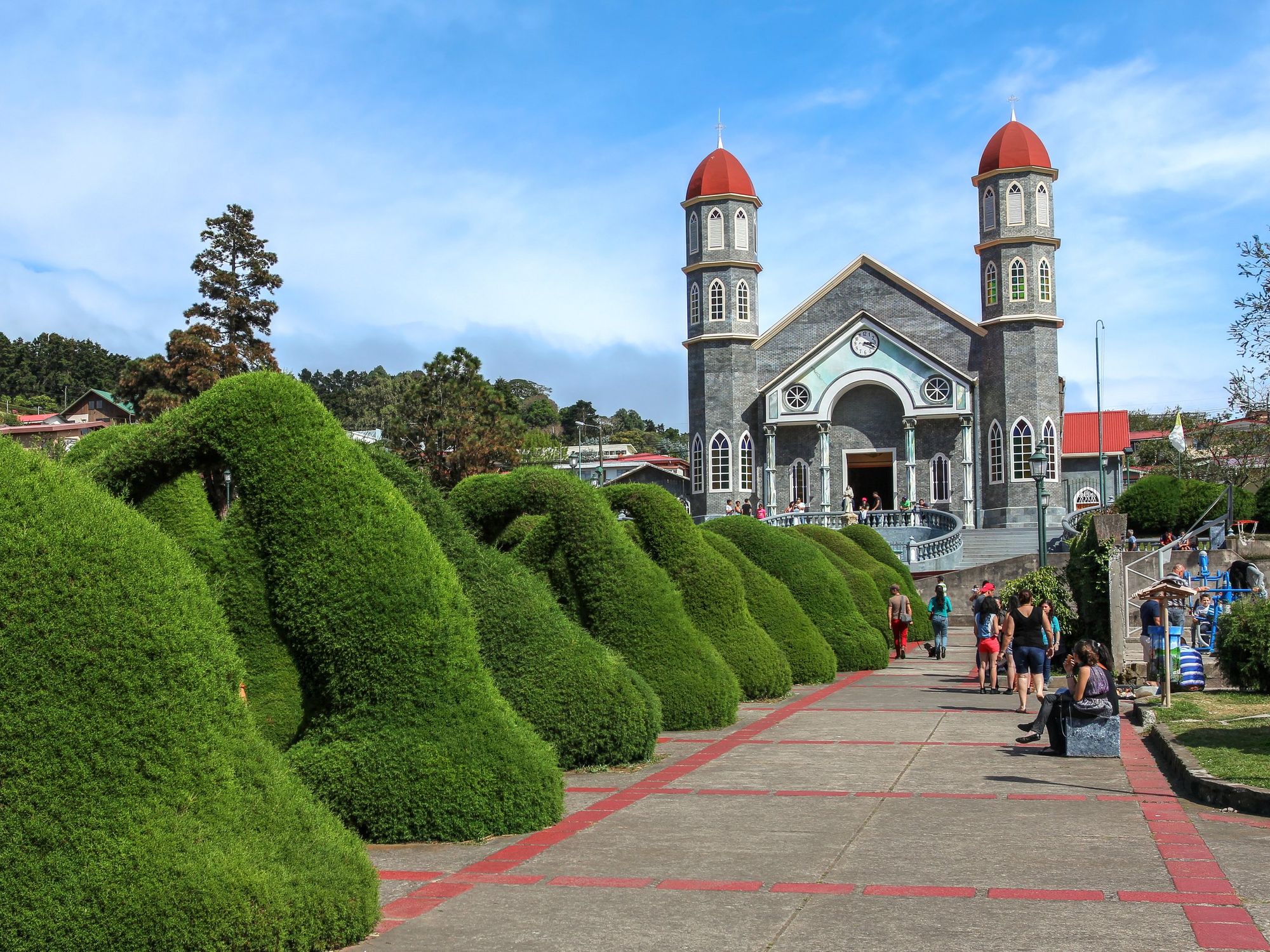
Francisco Alvardo Park and the Church of San Rafael in Zarcero, Costa Rica.
Risk level: Exercise a high degree of caution
Why: Petty theft, such as pickpocketing and purse snatching, is prevalent, particularly in tourist areas and during peak seasons. Thieves often work in teams to divert attention while stealing belongings. Specific hotspots for theft include San José, the Pacific coast (particularly Dominical, Jacó, Manuel Antonio, Quepos, and the Cóbano area), and the Caribbean coast (including Cahuita, Puerto Limón, and Puerto Viejo).
Residential break-ins are a risk, especially in rental accommodations and houses owned by foreigners. Car theft is widespread, occurring at hotels, supermarkets, restaurants, and national parks. Additionally, violent crime, including armed robberies and drug-related incidents, is prevalent in provinces such as Alajuela, Limón, Puntarenas, and San José. Travellers are advised to secure their belongings and avoid isolated areas, especially at night.
Cuba
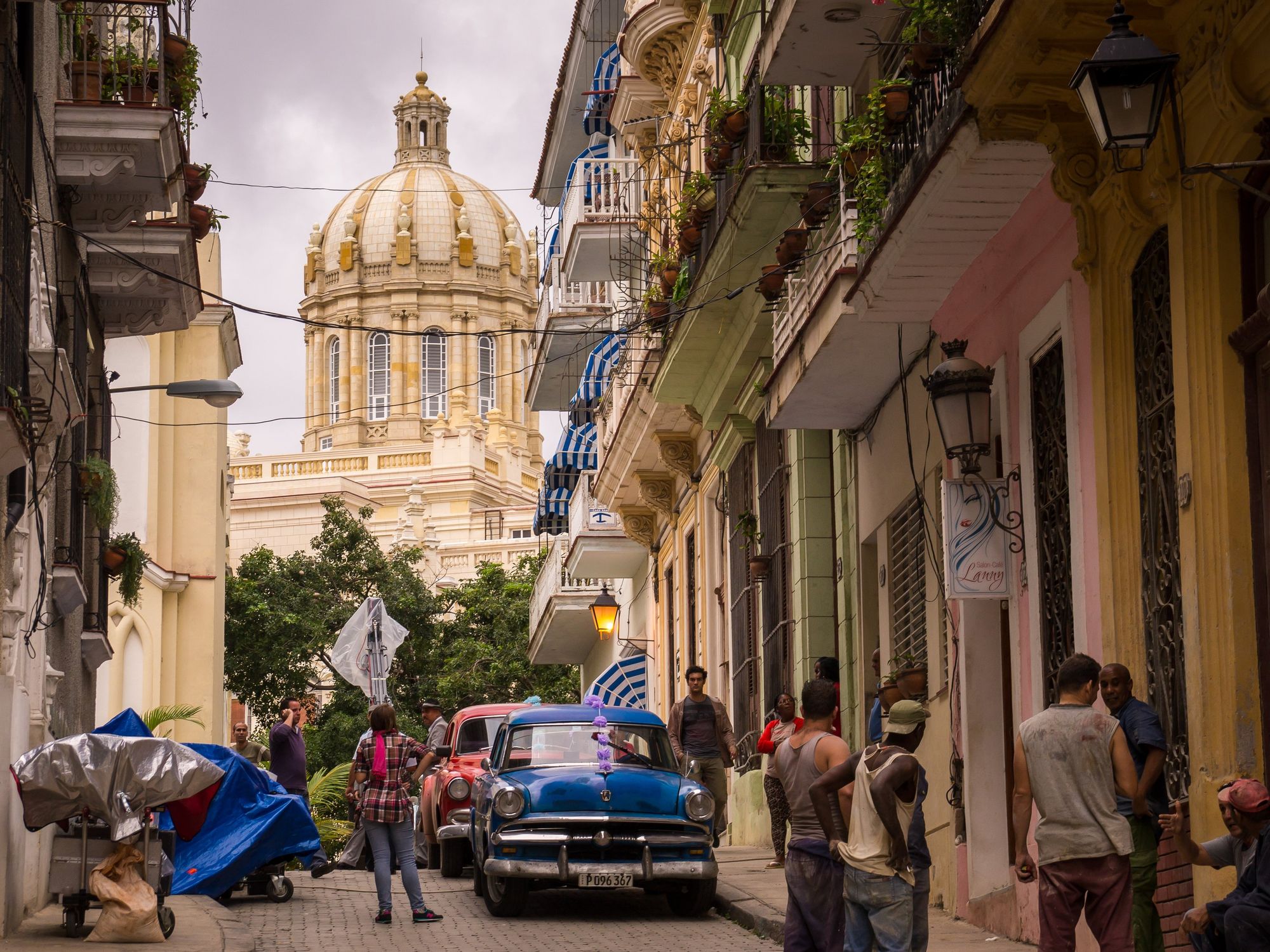
View of the capitol in Havana.
Risk level: Exercise a high degree of caution
Why: You can take normal security precautions in the Cuban resort areas of Cayo Coco, Cayo Largo del Sur, Cayo Santa Maria, Guardalavaca, and Varadero, but shortages of basic necessities, including food, medicine, and fuel, are rampant in the rest of Cuba. In crowded tourist spots and markets, petty crimes like pickpocketing and purse snatching are common. Theft from hotel rooms and cars is also frequent.
Violent crimes, though rare, may occur during burglaries or robberies. Travellers should be cautious of credit card and ATM fraud, as well as overcharging by businesses, especially taxis. Scammers may pose as tour guides or facilitators, and tourists should use registered taxis and reputable tour operators to avoid scams and thefts.
France

People look at art in the Louvre.
Risk level: Exercise a high degree of caution
Why: France faces an increased risk of terrorism. Opportunistic and planned attacks have occurred, leading to casualties. The Vigipirate plan, featuring a three-level public alert system, aims to deter terrorist activities with military patrols. High-risk areas encompass government buildings, schools, transportation hubs like train stations and airports, and popular tourist destinations such as the Eiffel Tower and Louvre Museum.
Petty crimes like pickpocketing are common in major cities and tourist areas. Vehicle break-ins are prevalent, especially in coastal areas and highway rest stops. Bomb threats have targeted public locations, including tourist areas and transportation hubs. Following authorities' instructions during such incidents is crucial.
- The Safest Countries To Visit In 2024 Were Ranked & Canada Came Out On Top ›
- 9 At-Risk Places You Should Not Visit In 2024, Travel Experts Say ›
- 7 Of The Worst Travel Scams For Canadians To Avoid On Vacation & How To Spot Them ›
- Air Transat Is Offering Cheap Flights From Canada To Europe, Mexico & Florida - MTL Blog ›
- Air Canada Is Offering Fare Caps & Extra Seats Following Lynx Air's Sudden Shutdown - MTL Blog ›
